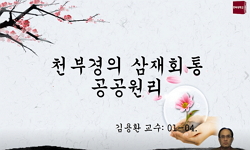The purpose of this paper is to examine the aspects of knowledge socialization in Mohism under the theme of self-awareness and self-reflection. Knowledge has evolved gradually from the form of primary information accumulated as humans have survived in...
http://chineseinput.net/에서 pinyin(병음)방식으로 중국어를 변환할 수 있습니다.
변환된 중국어를 복사하여 사용하시면 됩니다.
- 中文 을 입력하시려면 zhongwen을 입력하시고 space를누르시면됩니다.
- 北京 을 입력하시려면 beijing을 입력하시고 space를 누르시면 됩니다.

지식사회화의 단면 고찰 - 묵자 사상의 자각과 반성을 중심으로 - = A Study on Aspects of Knowledge Socialization - Focusing on the self-awareness and self-reflection in Mohism
한글로보기https://www.riss.kr/link?id=A105953715
- 저자
- 발행기관
- 학술지명
- 권호사항
-
발행연도
2018
-
작성언어
-
- 주제어
-
KDC
100
-
등재정보
KCI등재
-
자료형태
학술저널
- 발행기관 URL
-
수록면
133-167(35쪽)
-
KCI 피인용횟수
0
- DOI식별코드
- 제공처
-
0
상세조회 -
0
다운로드
부가정보
다국어 초록 (Multilingual Abstract)
The purpose of this paper is to examine the aspects of knowledge socialization in Mohism under the theme of self-awareness and self-reflection.
Knowledge has evolved gradually from the form of primary information accumulated as humans have survived in the natural world to abstract, higher dimensional forms. In this regard, knowledge is the result of personal discovery and awareness, and it is socialization that spreads to the public sphere and is accepted socially. Socialized knowledge is called ideology. In this sense, ideology has two characteristics. First, ideology is a socially shared knowledge. In other words, ideology is a structure of knowledge composed of social needs. Second, ideology is self-aware and self-reflective in that social demands are reflected. In other words, if the ideology is separated from the social demands, it loses its social basis and inevitably declines or disappears.
This paper focused on the problem of the practice of knowledge and institutionalization of knowledge in the aspect of the theory of Mo-tzu’s Heavenly theory, human theory, social theory. In this process, this paper deduced the reflection and awareness of the Mo-tzu on the previous Confucius thought, and the clue of the awareness and reflection of the Mo-tzu on the future Meng-tzu and Hsun-tzu.
Mohism is characterized by its formation, development, decline, and disappearance in East Asian philosophy. It is easy to examine the phenomenon of socialization of knowledge. In particular, Mo-tzu defined 仁, one of the key words of Confucius thought, as differential love according to the relationship. Mo-tzu analyzed the cause of all the problems that were prevalent at the time because of the differential tendency of Confucianism. In addition, Mohism showed the process of decline and disappearance as rapidly as its emergence and spread, and the conditions of knowledge disappearance that Mohism shows were aggregated in two ways: the loss of the specificity of the knowledge system and the loss of the social foundation of ideology.
In short, Mohism in the subject of knowledge is a useful model that shows the process of formation, development, and decline and disappearance of knowledge between personal context and social context, and this series of processes can be called 'socialization of knowledge'. In addition, reflection and awareness of society by intellectuals is essential for the socialization of knowledge, which involves the process of tensions, confrontation, integration and communication between personal awareness and social needs. Mohism proves historically that a process of inevitably declining or disappearing when one knowledge system and ideology lose their own identity and can not accommodate the social demands of contemporary society.
참고문헌 (Reference)
1 "論語"
2 송영배, "제자백가의 다양한 전쟁론과 그 철학적 문제의식(Ⅱ)" 단국대학교동양학연구소 29 : 1999
3 묵자, "묵자" 도서출판 인간사랑 2014
4 "荀子"
5 민홍석, "孟子의 墨家 비판" 유학연구소 30 : 89-121, 2014
6 "孟子"
7 孫詒讓輯, "墨子閒詁"
8 "墨子"
9 "呂氏春秋"
1 "論語"
2 송영배, "제자백가의 다양한 전쟁론과 그 철학적 문제의식(Ⅱ)" 단국대학교동양학연구소 29 : 1999
3 묵자, "묵자" 도서출판 인간사랑 2014
4 "荀子"
5 민홍석, "孟子의 墨家 비판" 유학연구소 30 : 89-121, 2014
6 "孟子"
7 孫詒讓輯, "墨子閒詁"
8 "墨子"
9 "呂氏春秋"
동일학술지(권/호) 다른 논문
-
- 동양철학연구회
- 홍성민 ( Hong Seongmin )
- 2018
- KCI등재
-
- 동양철학연구회
- 오진솔 ( Jinsol Oh )
- 2018
- KCI등재
-
역사적 사례와 실증으로 살펴본 ‘선비정신’ 탐색(探索)및 제고(提高)
- 동양철학연구회
- 김용재 ( Kim Yong-jae )
- 2018
- KCI등재
-
“계씨장벌전유(季氏將伐顓臾)”장(章)의 실상(實狀)과 공자(孔子)비판의 함의
- 동양철학연구회
- 임태승 ( Lim Tae-seung )
- 2018
- KCI등재
분석정보
인용정보 인용지수 설명보기
학술지 이력
| 연월일 | 이력구분 | 이력상세 | 등재구분 |
|---|---|---|---|
| 2026 | 평가예정 | 재인증평가 신청대상 (재인증) | |
| 2020-01-01 | 평가 | 등재학술지 유지 (재인증) |  |
| 2017-01-01 | 평가 | 등재학술지 유지 (계속평가) |  |
| 2013-01-01 | 평가 | 등재학술지 유지 (등재유지) |  |
| 2010-01-01 | 평가 | 등재학술지 유지 (등재유지) |  |
| 2008-01-01 | 평가 | 등재학술지 유지 (등재유지) |  |
| 2005-05-31 | 학술지명변경 | 한글명 : 동양철학연구(Journal of Eastern Philosophy) -> 동양철학연구외국어명 : 미등록 -> Journal of Eastern Philosophy |  |
| 2005-01-01 | 평가 | 등재학술지 선정 (등재후보2차) |  |
| 2004-01-01 | 평가 | 등재후보 1차 PASS (등재후보1차) |  |
| 2003-01-01 | 평가 | 등재후보학술지 선정 (신규평가) |  |
학술지 인용정보
| 기준연도 | WOS-KCI 통합IF(2년) | KCIF(2년) | KCIF(3년) |
|---|---|---|---|
| 2016 | 0.54 | 0.54 | 0.59 |
| KCIF(4년) | KCIF(5년) | 중심성지수(3년) | 즉시성지수 |
| 0.55 | 0.54 | 1.394 | 0.1 |




 KCI
KCI KISS
KISS






